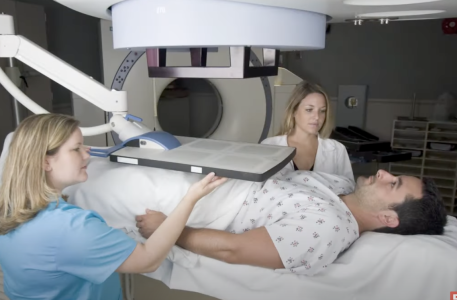Breakthrough in prostate cancer treatment: What every patient needs to know about this game-changing discovery
- Replies 0
Prostate cancer is a topic that touches the lives of millions of American men and their families. It’s the second most common cancer among men in the United States, trailing only behind skin cancer.
While advances in screening and treatment have made a world of difference over the past few decades, the search for new, more effective therapies never stops.
Now, a team of Swedish researchers has made a discovery that could change the game for prostate cancer patients everywhere—and it all starts with a medication you might already know.
A Surprising Ally: Diabetes Drug Shows Promise Against Prostate Cancer
In a study published in the journal Molecular Cancer, scientists at Sweden’s Umeå University found that a drug commonly prescribed for Type 2 diabetes—pioglitazone—may do much more than regulate blood sugar.
Their research, which included both animal studies and a retrospective look at 69 prostate cancer patients with Type 2 diabetes, revealed something remarkable: none of the patients experienced a recurrence of their cancer while taking the drug.
“This is a significant discovery,” said Lukas Kenner, a visiting professor at Umeå University.
“For the first time, we have clinical observations showing that prostate cancer patients with diabetes who received drugs targeting the protein PPARy remained relapse-free during the period we followed them.”

How Does Pioglitazone Work?
Pioglitazone is part of a class of drugs called thiazolidinediones, which help the body use insulin more effectively.
But in this study, the drug’s benefits went beyond blood sugar control. It appeared to slow the growth of prostate cancer cells and, perhaps even more importantly, made it harder for the cancer to come back after treatment.
The key seems to be the drug’s effect on a protein called PPARy, which plays a role in cell growth and metabolism.
By targeting this protein, pioglitazone may help keep cancer cells in check.
Also read: The sneaky signs of cancer most men miss—Would you recognize them before it’s too late?
What Does This Mean for Patients?
Before you rush to your medicine cabinet, it’s important to note that these findings are still in the early stages.
The research included a relatively small group of patients, all of whom had both prostate cancer and Type 2 diabetes.
Source: CBS Boston / Youtube.
More studies are needed to confirm whether pioglitazone can help men without diabetes, and to fully understand the risks and benefits.
Still, the results are promising. If future clinical trials confirm these findings, pioglitazone—or similar drugs—could become a valuable new tool in the fight against prostate cancer, especially for men at risk of recurrence.
Also read: Joe Biden’s recent health concern might not be so small after all—Doctors reveal a new aggressive diagnosis
A Wave of Innovation in Prostate Cancer Care
This discovery is just the latest in a series of exciting advances in prostate cancer research. Here are a few more breakthroughs that are changing the landscape:

Have you or someone you know been affected by prostate cancer? What questions do you have about new treatments or screening options? Have you tried any of the new at-home tests, or are you curious about how AI might change cancer care? Share your thoughts, experiences, and questions in the comments below!
While advances in screening and treatment have made a world of difference over the past few decades, the search for new, more effective therapies never stops.
Now, a team of Swedish researchers has made a discovery that could change the game for prostate cancer patients everywhere—and it all starts with a medication you might already know.
A Surprising Ally: Diabetes Drug Shows Promise Against Prostate Cancer
In a study published in the journal Molecular Cancer, scientists at Sweden’s Umeå University found that a drug commonly prescribed for Type 2 diabetes—pioglitazone—may do much more than regulate blood sugar.
Their research, which included both animal studies and a retrospective look at 69 prostate cancer patients with Type 2 diabetes, revealed something remarkable: none of the patients experienced a recurrence of their cancer while taking the drug.
“This is a significant discovery,” said Lukas Kenner, a visiting professor at Umeå University.
“For the first time, we have clinical observations showing that prostate cancer patients with diabetes who received drugs targeting the protein PPARy remained relapse-free during the period we followed them.”

Swedish researchers have found that a common diabetes drug, pioglitazone, may help prevent prostate cancer from returning, based on studies in mice and 69 diabetic patients. Image source: Stanford Center for Health Education / Youtube.
How Does Pioglitazone Work?
Pioglitazone is part of a class of drugs called thiazolidinediones, which help the body use insulin more effectively.
But in this study, the drug’s benefits went beyond blood sugar control. It appeared to slow the growth of prostate cancer cells and, perhaps even more importantly, made it harder for the cancer to come back after treatment.
The key seems to be the drug’s effect on a protein called PPARy, which plays a role in cell growth and metabolism.
By targeting this protein, pioglitazone may help keep cancer cells in check.
Also read: The sneaky signs of cancer most men miss—Would you recognize them before it’s too late?
What Does This Mean for Patients?
Before you rush to your medicine cabinet, it’s important to note that these findings are still in the early stages.
The research included a relatively small group of patients, all of whom had both prostate cancer and Type 2 diabetes.
Source: CBS Boston / Youtube.
More studies are needed to confirm whether pioglitazone can help men without diabetes, and to fully understand the risks and benefits.
Still, the results are promising. If future clinical trials confirm these findings, pioglitazone—or similar drugs—could become a valuable new tool in the fight against prostate cancer, especially for men at risk of recurrence.
Also read: Joe Biden’s recent health concern might not be so small after all—Doctors reveal a new aggressive diagnosis
A Wave of Innovation in Prostate Cancer Care
This discovery is just the latest in a series of exciting advances in prostate cancer research. Here are a few more breakthroughs that are changing the landscape:
- Artificial Intelligence in Diagnosis: A recent UCLA study found that an AI tool could identify prostate cancer with 84% accuracy, compared to 67% by physicians. This technology could help doctors catch cancer earlier and more accurately, leading to better outcomes.
- At-Home Saliva Testing: New at-home saliva tests can analyze DNA for genetic markers linked to prostate cancer. These tests may offer a more accurate and convenient alternative to traditional blood tests, making early detection easier than ever.
- The Importance of Screening: While the five-year survival rate for prostate cancer is an encouraging 97%, studies show that men who skip regular screenings are 45% more likely to die from the disease. Early detection remains the best defense.
Key Takeaways
- Swedish researchers have found that a common diabetes drug, pioglitazone, may help prevent prostate cancer from returning, based on studies in mice and 69 diabetic patients.
- The study showed that prostate cancer patients with diabetes who took drugs targeting the PPARy protein remained relapse-free during the observed period.
- Further clinical trials are needed to see if this treatment could benefit prostate cancer patients who don’t have diabetes.
- Recent advancements in prostate cancer include improved AI-based diagnosis and a new at-home saliva DNA test, both offering more accurate detection methods.
Have you or someone you know been affected by prostate cancer? What questions do you have about new treatments or screening options? Have you tried any of the new at-home tests, or are you curious about how AI might change cancer care? Share your thoughts, experiences, and questions in the comments below!





